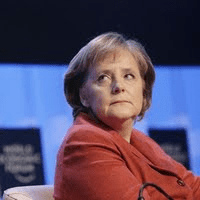Both the Lisbon Treaty, which entered into force on Dec. 1, 2009, and the effects of the sovereign debt crisis that has ravaged the European Union for the past two years have considerably changed the union’s functioning. The Lisbon Treaty created the position of a permanent president of the European Council, tasked with preparing and chairing the council’s meetings and shepherding working committees between summits. As expected, this helped the summits of EU heads of state and government gain steering capacity and political importance in the decision-making system of the EU. But the sovereign debt crisis further established the European Council as the center of both crisis management and governance reform of the EU to a degree that took many by surprise. The European Council’s appropriation of longer-term policy planning and strategic reflection has in particular challenged the European Commission’s role and called into question its capacity to act as an agenda-setter. Essentially, the European Union has become more intergovernmental, with some even observing a move toward renationalization.
The winners of this evolution are above all the large member states that can considerably influence the agenda of the European Council and the direction of its debates. Meanwhile, in the discussions over the future shape of the monetary union, power has also clearly shifted to those member states that are on the donor side of the rescue mechanisms set up to help out the crisis-stricken member states. Germany qualifies on both counts. German Chancellor Angela Merkel probably has the most-direct access to European Council President Herman Van Rompuy, in particular in the debate over governance reform of the euro area. And with the strongest-performing economy of the eurozone over the past two years, Germany currently guarantees 27 percent of the European Financial Stability Facility (EFSF), amounting to €211 billion ($276 billion). Simply put, Germany is today the most influential member state of the European Union.
As a result, Germany now finds itself at the center of the debate over the shifting power relationships in the EU. Many observers still tend to see Germany as the reluctant giant at the center of the eurozone, hesitating to save the single currency. Does Germany still want the EU? How far does Germany’s European commitment go? These questions are among those most often heard when it comes to the changing politics of European integration.

